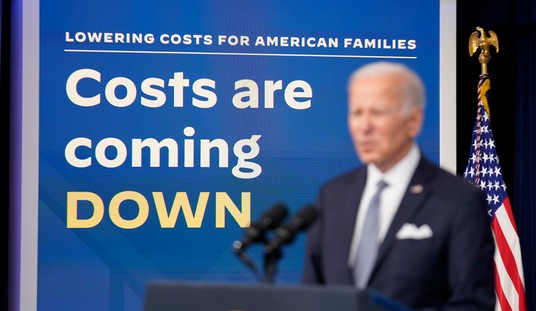On Monday, grassroots Republican favorite Donald Trump repeated the phrase when an audience member called Ted Cruz a "p----." He came to this conclusion after determining that Cruz wasn't sufficiently gung-ho about waterboarding possible terrorists. Asked to define conservatism at the last Republican debate, Trump stated, "I think it's a person who doesn't want to take overly risks. I think that's a good thing."
On Tuesday, establishment Republican favorite columnist David Brooks of The New York Times wrote a column called "I Miss Barack Obama." In it, he pilloried Senators Marco Rubio, R-Fla., and Ted Cruz, R-Texas, and lamented that Obama "radiates an ethos of integrity, humanity, good manners and elegance that I'm beginning to miss." In October, Brooks defined conservatism thusly: "conservatism stands for intellectual humility, a belief in steady, incremental change, a preference for reform rather than revolution, a respect for hierarchy, precedence, balance and order, and a tone of voice that is prudent, measured and responsible."
Neither of these definitions are correct, of course. But the fact that Trump and Brooks largely agree on the definition of conservatism while fighting each other tooth and nail demonstrates why conservatism is losing.
Both Trump and Brooks think that conservatism is mainly an attitude. It's not a set of principles and policies; it's not a philosophy of human freedom and small government. Instead, conservatism is merely an orientation toward change: Trump wants slow change, and so does Brooks.
So where do they disagree? They disagree about whether conservatism is militant attitude in pursuit of slow change (Trump) or whether conservatism is elegance in pursuit of slow change (Brooks). Trump thinks Brooks is a "p----," presumably; Brooks thinks Trump is a vulgarian.
Recommended
Neither one is actually conservative, and yet they're fighting for the mantle of conservative leadership.
The problem, of course, is that conservatism has very little to do with attitude. Conservatism demands Constitutionalism, and in the aftermath of a century of progressive growth of government -- including growth at the hands of so-called conservatives -- change need not be gradual. The attitude matters less than the goal. We can have hard-charging conservatives like Mark Levin; we can have 10-dollar-word conservatives like many of the writers at National Review. What we can't have is nonconservatives redefining conservatism as an attitude, and then ignoring the underlying philosophy.
Yet that's precisely what we have in this race. The entire Republican race thus far has avoided policy differentiations in favor of critiques of attitudes. Who is more palatable, the shifty-seeming Cruz, or the smooth-talking Rubio? Who is more worthwhile, the brusque Chris Christie or the milquetoast Jeb Bush?
Who cares?
Republicans have spent so long in the wilderness that they've forgotten what animated them in the first place. At some point, Republicans forgot that their job was to determine the best face for a conservative philosophy, and instead substituted the face for the philosophy. The conservatism simply fell away.
In the battle between David Brooks' pseudoconservatism and Donald Trump's pseudoconservatism, there are no winners, but there is one major loser: conservatism itself. Conservatives need to worry less about how they fight -- whether they wear creased pants or hurl nasty insults -- and instead contemplate why they're fighting in the first place.
























Join the conversation as a VIP Member